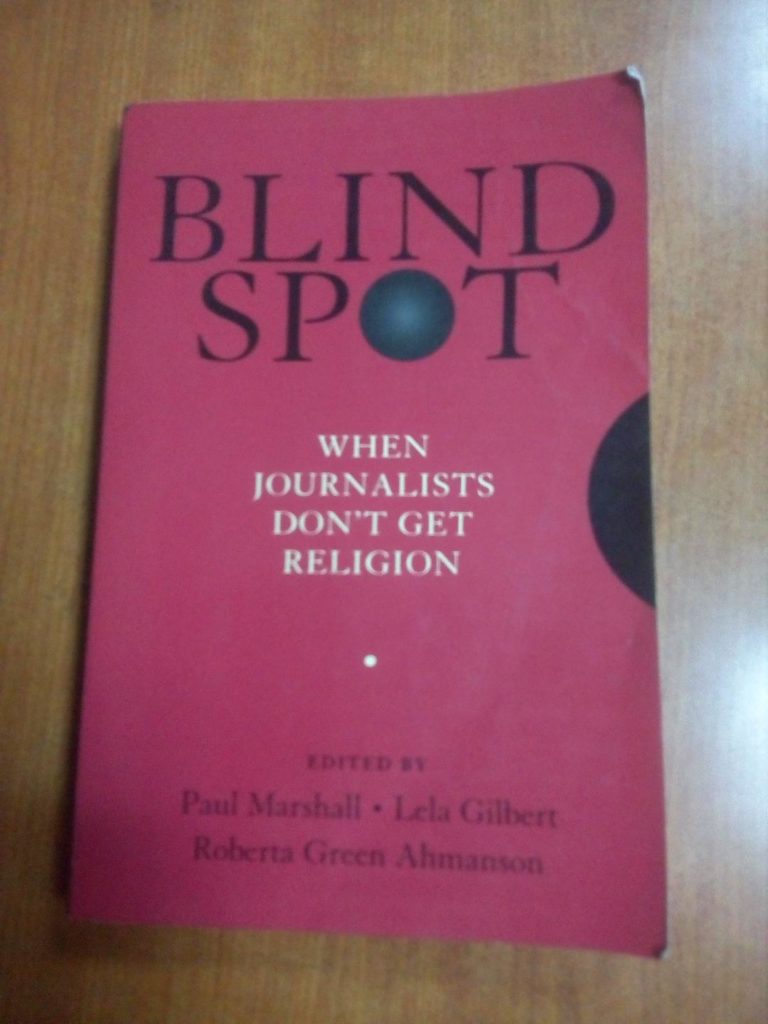Kelechi Amakoh reviews Blind Spot: When Journalists Don’t Get Religion edited by Paul Marshall, Leila Gibert and Roberta Green Ahmanson
Have you ever wondered how that favourite broadcaster delivers impeccable News at 10 programme on television? Or how do you see a columnist who never fails to spurt facts on issues of national importance with his literary prowess on his weekly column.
Why not pause and think about the magic stick the newspaper editor welds every day in order to arouse your interest at the newsstands. In all, journalism is believed to be history written in a hurry expected to impact.
However Blind Spot: When Journalists Don’t Get Religion highlights the failure of journalists to consider religion when reporting the major news story or conducting the regular personality interview. Religious dimensions cannot be wished away when the news breaks. Journalists frequently get big religion stories wrong or missed totally. Generally, news stories are mostly given political colouration or ethnic transfiguration. Though religion is either played down or never highlighted, it is a very sensitive topic that touches the core of every citizen.
The book is an anthology of well-researched essays which is written by twelve accomplished American writers and edited by Paul Marshall, Leila Gibert and Roberta Green Ahmanson. It takes a cursory look into the media with the task to highlight misunderstanding journalists have in missing the important ingredient in major stories in the world with focus on the American media. There are chapters hat extensively states the errors journalists made during the 2004 media coverage of the election involving the then incumbent president, George Bush and John Kerry, the thirty years of a faulty reporting of Iran and Iraq, al Qaeda, the papal election, faith-based humanitarian programmes and the hullabaloo surrounding the Passion of Christ movie release in 2004.
In Nigeria, the religion bias is so strong. But to what extent does the Nigerian media critically report news stories with the view of highlighting the religion nuance? Most times major stories passed off as politically motivated have all along being a shade from the religion bloc. It is best to have newsrooms with people versed in the happenings of the religious sector in order to give rise to the Who is behind the Who kind of reporting. Today, Nigeria is bedevilled by the nefarious activities of the Boko Haram sect (formerly known as Jamaat AHL As-Sunnah lid-Da’wah wa’l-Jihad), Farmers/Herdsmen debacle and other major news in the last few months. Its best journalists rise up to occasion by reporting beyond the overused narratives in the media sphere.
The book isn’t high on loathing the activities of journalists rather making recommendations on how journalists, editors and publishers can improve. Even in this age of declining newspaper sales and revenue due to digital media, the author of the penultimate chapter notes that editors must hire reporters who will treat ‘religion with empathy and also scepticism, quote people accurately, show respect for the lives of their sources and stop mangling the technical, yet often poetic, language of religious life.’ The final chapter: “Getting it Right,” proffers solution to the problem of glossing over religious dimensions to news stories. In it, there are seven submitted solutions. As the day goes by, the impact of religion in shaping our world is increasing. As such, we must not fail to underrate understanding it.
I recommend this book to journalists, religion beat reporters, editors, communication professors and students.


